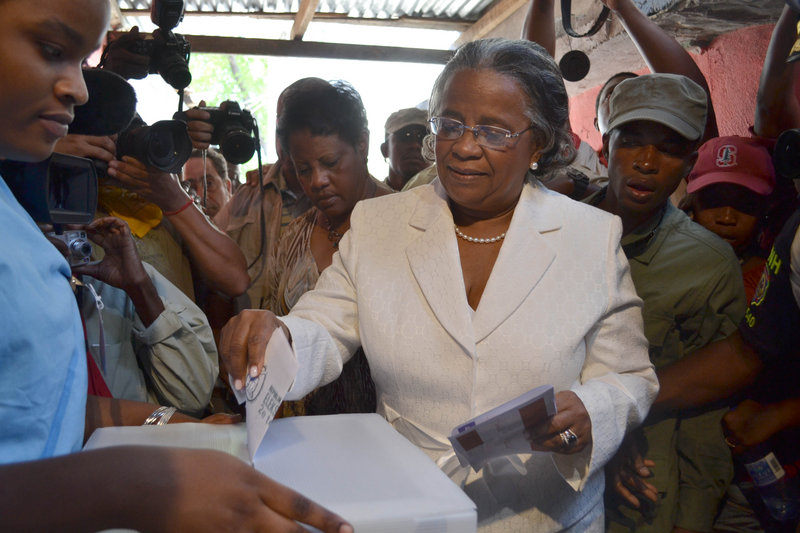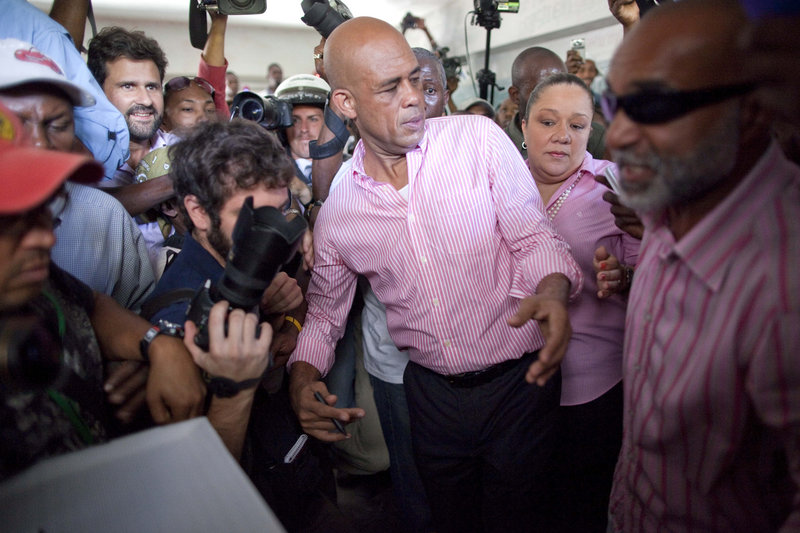PORT-AU-PRINCE, Haiti – Haitians went to the polls Sunday to select a president in a runoff as officials sought to prevent the kind of disorganization and fraud that marred the election’s disputed first round.
Early voting appeared relatively calm in the capital, Port-au-Prince, although some polling sites were missing ballot boxes and tally sheets, or were late to open.
Recent opinion polls showed the candidates — Michel Martelly, a singer of Haitian kompa music, and Mirlande Manigat, a university administrator and former first lady — in a competitive race. Both are conservatives but are miles apart in style and background.
Martelly, 50, has run as a populist out to shake up the political system while Manigat, 70, portrays herself as a sober, maternal figure for a nation in crisis.
The next president will rule as the country hopes to rebuild from last year’s devastating earthquake and overcome a deadly cholera epidemic, while confronting long-standing poverty and unemployment.
“We want things to change,” said Michel Lifrand, a mason who voted next to the tent encampment where he had lived since losing his home in the Jan. 12, 2010, quake. “It’s a hard life. After a year and a half, we’re still under these tents.”
Some investors and donors are waiting for a new Haitian government to take office before moving forward on earthquake-recovery projects, officials say, so the election marks a key moment in a reconstruction that has moved at a snail’s pace.
First, though, election officials hope they have fixed problems that prevented many Haitians from voting in November’s first-round election because they were left off the voting rolls or had gone to the wrong sites. Many people had not received their voting cards in time.
On top of the organizational lapses, election experts found that fraud appeared to have denied Martelly the second slot in the runoff. After weeks of international pressure and street protests by Martelly’s supporters, the ruling party’s candidate, Jude Celestin, was dropped and Martelly was awarded the spot to oppose Manigat, the top vote-getter.
Officials revamped voter lists, hired hundreds of new election workers and opened telephone hot lines to help the 4.7 million registered voters find the right polling sites. Although officials expressed confidence the second round would be smoother than the first, they acknowledged it was unlikely the new measures would erase problems altogether in a country with a long history of voting-day fraud and disarray.
Copy the Story Link
Send questions/comments to the editors.




Success. Please wait for the page to reload. If the page does not reload within 5 seconds, please refresh the page.
Enter your email and password to access comments.
Hi, to comment on stories you must . This profile is in addition to your subscription and website login.
Already have a commenting profile? .
Invalid username/password.
Please check your email to confirm and complete your registration.
Only subscribers are eligible to post comments. Please subscribe or login first for digital access. Here’s why.
Use the form below to reset your password. When you've submitted your account email, we will send an email with a reset code.